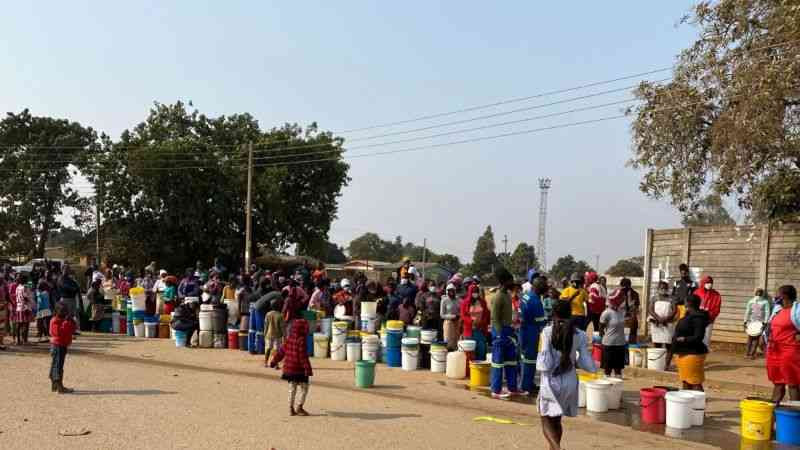
VARIOUS stakeholders from Chitungwiza have raised concern over the water crisis in one of Harare’s dormitory towns saying the water shortage is a major environmental challenge.
The stakeholders flagged the crisis during a two-day workshop to craft council’s Local Environmental Action Plan (LEAP) which ended yesterday.
LEAP is a comprehensive roadmap designed to guide efforts in addressing environmental problems such as water shortage, waste management, water pollution and climate change.
Water shortage was ranked as number one after the identification of challenges and pairwise ranking at the workshop that was facilitated by the Environmental Management Agency (Ema) among blocked drains, waste management and unplanned settlements.
Chitungwiza has approximately half a million people, but the local authority has, in the absence of its own water source, faced challenges in providing the precious liquid to residents.
The situation was worsened by the decommissioning of the Prince Edward Water Treatment Plant in August last year due to a natural disaster.
Harare Provincial Affairs and Devolution secretary Cosmas Chiringa said Chitungwiza faced unique challenges due to its rapid urbanisation and population growth.
“As one of the largest urban centres in Zimbabwe, the municipality has struggled to keep pace with the increasing demand for basic services such as water, sanitation and waste management.
- Over 115 to exhibit at Mine Entra
- Young entrepreneur dreams big
- Econet bemoans power outages
- Govt opens ChiTown e-passport centre
Keep Reading
“The absence of a dedicated water source and treatment plant in Chitungwiza Municipality has left the community reliant on external sources, leading to a chronic water shortage.
“Through the LEAP process, we can identify alternative water sources, improve water management practices and explore the possibility of constructing a water treatment plant to ensure a reliable supply of clean water for the community.”
Chiringa said LEAP encouraged integration of environmental considerations into all aspects of municipal planning, from land use and infrastructural development to public health and education.
“We must also be mindful of the need to balance development with environmental protection. While it is important to meet the needs of our growing population, we must do so in a way that does not compromise the health of our environment.
“This means adopting sustainable practices, investing in green infrastructure and promoting environmental awareness and education,” he said.
Acting Chitungwiza town clerk Japson Nemuseso said the plan was not just about protecting the environment.
“It is about safeguarding our health, our livelihoods and the future of our children. It is about ensuring that Chitungwiza remains a place where people can thrive, where businesses can grow and where nature can flourish,” he said.
Ema provincial environmental manager Leon Mutungamiri applauded council for engaging several stakeholders, something which he said was very critical in the development of the LEAP document.
“This document helps us to find partners in addressing these environmental challenges,” he said.
Residents associations, the corporate world, churches, women, government ministries and other local authorities participate in the workshop.










